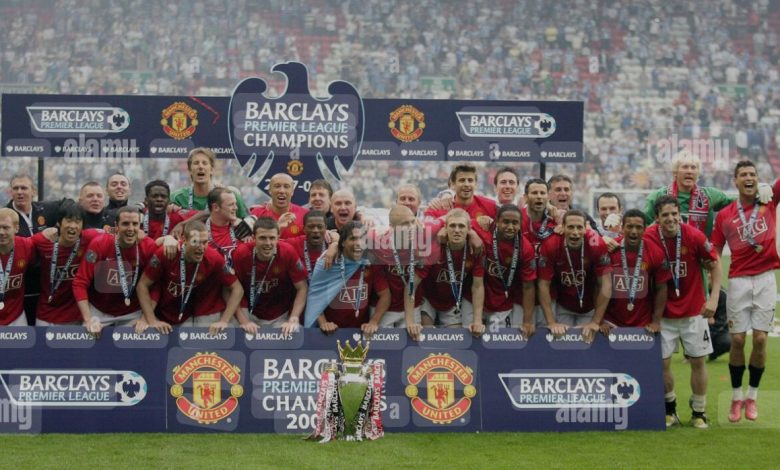Manchester United Football Club: A Journey Through History, Trophies, and Legacy


Manchester United Football Club, one of the most successful and popular football clubs in the world, has a long and storied history that spans over 140 years. From humble beginnings in the late 19th century to becoming a global powerhouse, Manchester United’s influence in the world of football is unparalleled. Below is a detailed exploration of the club’s founding, major achievements, key coaches, and its impact on both domestic and international football.
The Founding of Manchester United
Manchester United was originally founded as Newton Heath LYR Football Club in 1878, a team created by workers from the Lancashire and Yorkshire Railway depot in Newton Heath, Manchester. The club struggled financially in its early years, and by 1902, it faced bankruptcy. However, a turning point came when John Henry Davies, a local brewery owner, invested in the club and changed its name to Manchester United.
Under new management, Manchester United began its rise to prominence. The club’s first major success came in 1908, when they won their first First Division title. This victory marked the beginning of United’s long-standing tradition of success.
Early Success and the Busby Babes
The 1950s brought some of the club’s most tragic and glorious moments. Under legendary manager Sir Matt Busby, Manchester United became a dominant force in English football. Busby’s influence on the club is immeasurable, as he built the iconic Busby Babes, a team full of youthful talent and creativity.
In 1956 and 1957, United won back-to-back First Division titles, becoming one of the most exciting teams in Europe. However, tragedy struck on February 6, 1958, when a plane carrying the team back from a European Cup match in Belgrade crashed in Munich, Germany. The disaster, known as the Munich Air Disaster, claimed the lives of 8 players, and many others sustained severe injuries.
Despite this tragedy, Sir Matt Busby was determined to rebuild the team. He led Manchester United to victory in the 1968 European Cup, making them the first English club to win the prestigious trophy. This victory solidified United’s place as a major force in European football, and it was a tribute to the memory of the players lost in Munich.
The Ferguson Era: A New Dynasty
While United’s history has been rich with success, it was Sir Alex Ferguson who is most credited with transforming the club into a dominant global force. Ferguson, who took charge of Manchester United in 1986, initially faced challenges in the early years. However, his steadfast leadership, tactical expertise, and focus on developing young talent would ultimately shape the most successful period in the club’s history.
Ferguson’s reign was marked by an unrivaled string of successes:
• Premier League Titles: Under Ferguson, Manchester United won 13 Premier League titles, becoming the most successful club in the competition’s history.

• FA Cups: Ferguson led United to 5 FA Cup victories, cementing the club’s status as one of the most dominant in English football.
• UEFA Champions League: United won the UEFA Champions League twice under Ferguson, in 1999 and 2008. The 1999 Champions League final, which saw United stage a dramatic comeback against Bayern Munich to win 2-1, is one of the most iconic moments in football history.
• Other Trophies: Under Ferguson, United also won several League Cups, UEFA Super Cups, and Intercontinental Cups, along with dominating the domestic scene.
Ferguson’s emphasis on youth development was also pivotal. Players like Ryan Giggs, Paul Scholes, David Beckham, Gary Neville, and Nicky Butt were integral to United’s success during this era, forming part of the famed Class of 92, which became a cornerstone of the team’s success.
The Post-Ferguson Era: Challenges and Transition
After Ferguson’s retirement in 2013, Manchester United faced a difficult transition. The club’s next manager, David Moyes, struggled to fill the shoes of the legendary manager, and United failed to secure a top-four finish in the Premier League for the first time in decades. Moyes was dismissed after just ten months, and Louis van Gaal was brought in as his replacement.
Van Gaal’s tenure saw some success, including winning the FA Cup in 2016, but the team’s overall performances remained inconsistent. José Mourinho succeeded Van Gaal in 2016, bringing a more pragmatic approach. Under Mourinho, United won the 2016 UEFA Europa League, the 2016 EFL Cup, and finished second in the Premier League in 2018. However, despite individual successes, Mourinho’s tenure ended in 2018 after falling out with key players and failing to challenge for the league title consistently.
In 2019, Ole Gunnar Solskjær, a club legend, took over as interim manager and later as permanent manager. While Solskjær revived some of the club’s attacking play and led United to a third-place finish in the Premier League in 2020, he struggled to win major trophies. Solskjær was eventually replaced by Ralf Rangnick in 2021, who served as interim manager until the club appointed Erik ten Hag as their manager in 2022.
Under Ten Hag, the club has seen a renewed focus on discipline, organization, and pressing. The team has shown signs of improvement in domestic and European competitions, and fans hope that the Dutch manager can lead United back to the top.
Manchester United’s Global Impact and Network
Manchester United’s influence extends far beyond England, with millions of fans worldwide. The club’s global appeal is driven by its success, rich history, and high-profile players. Here are some key aspects of the club’s global network:
• Fanbase: United’s global following is one of the largest in sports, with supporters across Asia, Europe, Africa, and the Americas. The club often tours various continents for friendly matches, ensuring their brand reaches new markets.
• Commercial Success: Manchester United has built a strong commercial empire, securing lucrative sponsorship deals with major brands like Adidas, Chevrolet, and Aon. These partnerships have helped the club remain financially powerful despite the challenges on the pitch.
• Youth Development and Academies: United’s Academy has been one of the best in the world, producing talent such as Marcus Rashford, Mason Greenwood, and Jesse Lingard, who have gone on to represent the first team. The club has invested in youth development programs around the world, particularly in regions like Asia and Africa.
• Women’s Team: The club’s women’s team has risen to prominence in recent years, joining the FA Women’s Super League and quickly establishing itself as a competitive side. The team has helped broaden Manchester United’s influence in women’s football, aligning with the club’s broader commitment to inclusivity and diversity in sport.
Manchester United’s Trophy Cabinet
Manchester United has won numerous titles both domestically and internationally. Some of their most notable achievements include:
• 20 English First Division/Premier League titles (record 13 Premier League titles)
• 12 FA Cups
• 4 League Cups
• 3 UEFA Champions League titles (1968, 1999, 2008)
• 1 UEFA Europa League title (2017)
• 1 Intercontinental Cup
• 1 FIFA Club World Cup
Manchester United’s trophy-laden history and consistent success ensure that they remain one of the most recognizable and respected football clubs in the world.
Conclusion
Manchester United’s journey from a struggling local team in the late 19th century to becoming one of the most successful and famous clubs in world football is a testament to its legacy. With a rich history of triumphs, legendary players, and iconic managers, United continues to remain at the heart of football culture. As the club looks ahead to the future, the challenge will be to rediscover the success they enjoyed under Sir Alex Ferguson, while adapting to the ever-changing landscape of modern football. For Manchester United, the next chapter promises to be just as exciting as its past. Read also:Chelsea Football Club: A Deep Dive into Its Founding, History, Trophies, Coaches, and Network

